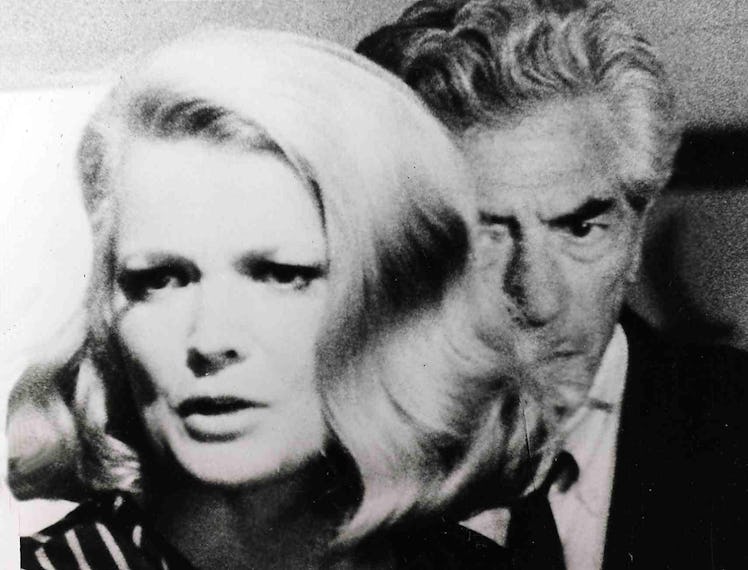Gena Rowlands, America’s First Indie Film Star, Dies at 94

Gena Rowlands, the singular actress whose career in Hollywood spanned nearly 60 years, died on Wednesday, August 14, at the age of 94. Earlier this year, her family announced that she had been diagnosed with Alzheimer’s disease. While many remembrances will focus on her performance as the older version of Rachel McAdams’s character in The Notebook, perhaps her most popular work of this century, Rowlands was in many ways America’s first true independent film star. Rowlands and her husband, the actor and director John Cassavetes, took roles in more lucrative mainstream films in order to fund their passion projects paving the way for American independent film as we know it.
The old crack about The Velvet Underground is that while few people originally bought their debut album, everyone who did formed a band. Something similar could be said about Rowlands. Her work in Cassavetes’s films, little seen at first, went on to be a major influence on acclaimed stars like Laura Linney and Sarah Paulson. Chloë Sevigny recently went viral for raving about Rowlands in front of Kim Kardashian. Though, perhaps Hollywood has no greater Rowlands acolyte than Cate Blanchett.
“When I see the work of Gena Rowlands, the intense authenticity and the immediacy of her acting seems to me to be the closest that anyone has ever come to capturing on film that special quality, that presence, of a live stage performance,” Blanchett said while presenting Rowlands with an honorary Oscar in 2015. “There is quite simply no membrane between Gena and her audience. She makes me forget entirely that she’s not actually inside my brain.”
Rowlands was born in Cambria, Wisconsin to a homemaker mother and a politician father, a member of the Progressive Party. She studied acting in New York and performed throughout much of the '50s on both stage and the small screen. She married Cassavetes in 1954, and the pair often appeared opposite each other in film and television. Rowlands’s film career took off in the ’60s with supporting roles in films fronted by the likes of Judy Garland, Frank Sinatra, and Rock Hudson. But her star rose in 1968 with the release of Faces. Directed and independently financed by Cassavetes, the film is now considered a landmark in American independent cinema. Martin Scorsese and Robert Altman acknowledged its influence, and a young Steven Spielberg famously worked on the film as an unpaid runner. Rowlands had a supporting role as a high-end sex worker, and in a review at the time, Roger Ebert praised her for “[avoiding] the heart-of-gold cliches,” instead portraying a character who “has her own problems and a deep reservoir of human sympathy as well.” A young Paul Schrader, then working as a movie critic, noted that Rowlands seemed to truly come alive in the film in comparison to her other Hollywood work.
Rowlands would take the lead in Cassavetes's 1974 film A Woman Under the Influence. Originally written for the stage, Rowlands decided there was no way she could play her character, a working-class mother struggling with alcoholism and mental illness, eight times a week. It almost wasn’t made until Peter Falk, best known as TV’s Columbo, took a co-starring role and provided $500,000 in funding.
Cassavetes gave Rowlands wide leeway to interpret the role as she pleased.
“He said Gena, I wrote this with you in mind …and you said that you wanted to do it, well then do it,” Rowlands recalled in 2015. “It was the most wonderful feeling of freedom. The part belongs to you …It’s freed me up in many things since so that when I hear the word ‘action,’ it’s not any pressure. It’s mine to do with what I think is right.”
Rowlands turned in an uncompromising, confrontational, often upsetting, and yet fully human performance that left critics at the time struggling to find anything else to compare it to. The film originally struggled to find distribution. Cassavetes called up art house cinemas himself to get it booked. But a rave review from Richard Dreyfus on national television provided a boost of influence. "I went crazy. I went home and vomited," he exclaimed on The Mike Douglas Show. Rowlands was nominated for an Oscar for her performance and also picked up a Golden Globe.
Rowlands and husband John Cassavetes at the 47th Academy Awards.
“It is the most compelling, unexpected, unpredictable ten minutes of film that I’ve ever seen. I’ve never seen acting like that,” Falk told Rowlands in a reunion years later of her performance of the film’s climatic breakdown scene. “You’re going to watch this scene of this lady here, it is going to get you. I don’t care if it’s 100 years from now. It will always be powerful.”
Rowlands with James Garner in The Notebook.
Rowlands continued to make films with Cassavetes (most notably Gloria and Opening Night) until his death in 1989. She maintained a long career in television films, winning three Emmys, including for her starring role in The Betty Ford Story and a supporting role opposite Uma Thurman in Hysterical Blindness. She also appeared in Strangers, opposite her own on-screen icon, Bette Davis. Rowlands continued to find roles in Hollywood pictures throughout her life, including in Hope Floats, Something To Talk About, The Skeleton Key, and, most notably, The Notebook, directed by her son Nick Cassavetes. Though, her true legacy remains in her profound impact on independent film.
“It’s a tricky life,” Rowlands once said of her and Cassavetes’s juggling act of using their Hollywood paychecks to finance their own films. “But it was so exciting and wonderful because you were doing what you really wanted to do.”